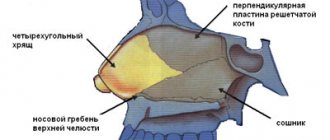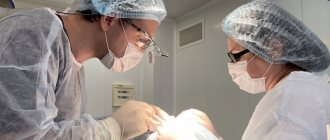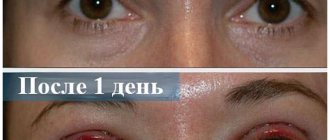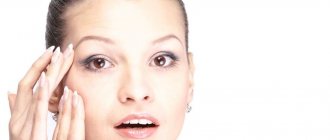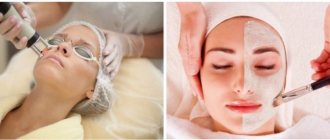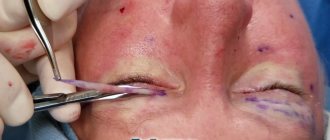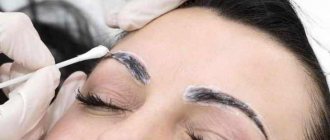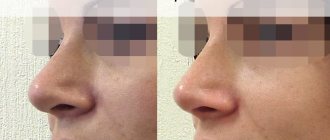Rehabilitation after plastic surgery
- an important stage of aesthetic transformation, which requires time and collaboration between the patient and the plastic surgeon. When recovery after surgery needs to be accelerated, for example, on the eve of an important event or going out, a cosmetologist can come to the rescue. An esthetician knows:
- how to relieve swelling after blepharoplasty;
- how to get rid of bruises after body liposculpture;
- how to get rid of visible scars after surgery
- ...and many other beauty secrets

We found out which beauty procedures will make the recovery process after plastic surgery on the face and body faster and more comfortable and have prepared this review for you.
During recovery after mammoplasty, facelift, blepharoplasty and other operations, it is important to follow all the surgeon’s recommendations
, consult with a doctor about procedures and care programs, do not forget about
dressings
and
follow-up examinations
. In combination with proper nutrition (proteins, antioxidants, enough clean water), rest, quitting smoking and alcohol (at least temporarily) - recovery in itself is faster. In some cases, the plastic surgeon prescribes additional medications - painkillers, a course of antibiotic therapy - so that recovery after plastic surgery is comfortable and without complications.
The restorative course of beauty treatments that we offer to our patients allows us to achieve the following results:
- get rid of swelling and bruises in a short time;
- reduce pain and discomfort;
- improve skin quality and its ability to regenerate;
- get rid of scars after surgery or make them less noticeable.
Rehabilitation after plastic surgery: why do we need special recovery programs?
You can find out more about recovery after mammoplasty, liposculpture and other aesthetic interventions on our website, and in more detail - at an appointment with a plastic surgeon
.
Hematomas and swelling after surgery, unfortunately, are inevitable. The minimum period required for tissue restoration after blepharoplasty and facelift is 14-30 days.
Rehabilitation after body surgery usually lasts 2 times longer. Of course, much depends on the specifics of the surgical intervention and the individual characteristics of the body.
Each patient always has a choice: to undergo an additional rehabilitation course or not. However, it is important to understand that rehabilitation programs are not only aimed at reducing rehabilitation or reducing pain. Electrostatic and lymphatic drainage massage, ultraphonophoresis and injection procedures have a beneficial effect on the skin at the cellular level. The restoration course is an excellent solution for those who strive for the best aesthetic result, want to take care of their skin and begin rehabilitation after plastic surgery with self-care, which is necessary to consolidate the impressive effect!
Indications
Transconjunctival blepharoplasty (sutureless) is indicated for patients with congenital or acquired hernias, swelling in the lower eyelids. This is due to a large accumulation of fatty tissue packets in the paraorbital region or weakness of the orbicularis oculi muscle. Seamless eyelid surgery makes sense if hernias are not accompanied by excess atonic skin, because Under the eyes, excess skin is not removed during transconjunctival surgery.
Rehabilitation after facial plastic surgery
Rehabilitation after a facelift (facelift), liposculpture and blepharoplasty is individual, but as practice shows, tissue restoration takes 2-3 weeks
.
During this period, bruises
and slight
swelling
, which increases
2-3 days
after surgery. Pain usually does not bother you and does not interrupt you from rest and daily activities; it can be reduced with the help of mild painkillers prescribed by your plastic surgeon. There is no need to worry about scars after a facelift and blepharoplasty - they are hidden in the natural folds of the skin or under the hair, and over time they will become invisible. If, during recovery after facial plastic surgery, a patient has an individual tendency towards hypertrophic, keloid, atrophic scars or the tissue healing process does not go entirely smoothly, cryodestruction of the scar, lipofilling or injection cosmetology comes to the rescue. Plastic surgeons at the Pirogov Clinic are always in touch with their patients. The key to successful recovery after facial plastic surgery is to follow all the doctor’s recommendations: for a while you need to give up warm baths, solariums, alcohol and smoking.
Swelling after blepharoplasty and features of the postoperative period
All patients are concerned about significant swelling after blepharoplasty.
You should know that swelling is a normal reaction of the body to tissue damage and should not be a cause for concern. A cooling bandage and compresses help reduce swelling. Limiting physical activity and taking anti-inflammatory drugs also help speed recovery. Bruising after blepharoplasty is another inevitable consequence of plastic surgery. Hematomas do not require special treatment and go away on their own within two weeks. Approximately the same amount of time is needed for the complete disappearance of tissue edema, but the change in skin color in the periorbital area can last up to 3-4 weeks. But from about the tenth day you can already use decorative cosmetics, which help hide the marks of plastic surgery.
After blepharoplasty, patients complain of discomfort and a feeling of stiffness in the eyelid area. These symptoms do not require special treatment; it is enough to follow general recommendations. Pain in the eyes, increased sensitivity to light, dry eyes or watery eyes, and temporary changes in vision also often accompany blepharoplasty.
Antiseptic eye drops help moisturize the mucous membrane and prevent infectious complications. During the daytime outdoors, it is advisable to wear sunglasses or glasses with tinted lenses. It is necessary to regularly perform gymnastics for the extraocular muscles and the orbicularis oculi muscle.
You will have to give up contact lenses for a couple of months and return to regular glasses. For 2-3 weeks you need to limit physical activity. If possible, you should sleep on high pillows. During the entire recovery period, you should not visit the solarium or sauna. It is advisable to give up alcohol, coffee and smoking. You should not take medications without first consulting your doctor.
The exact recovery time depends on many factors: the method and extent of surgical correction, the patient’s age, the condition of the skin and soft tissues of the face and periorbital area.
Physiotherapeutic methods can speed up tissue regeneration. In our clinic, microcurrent therapy is actively used after eyelid surgery. Each patient after plastic surgery is provided with three free procedures. The results of blepharoplasty can be assessed after 2 months.
Facial lymphatic drainage
How to relieve swelling after blepharoplasty or facelift, and also get rid of bruises after surgery?
lymphatic drainage
will best cope with this task . This is a soft and painless procedure, the essence of which is manual or hardware impact on the skin in the direction of lymph flow.
A course of electrostatic and microcurrent drainage can be started 2-3 days after facial plastic surgery
- in accordance with the recommendations of the plastic surgeon.
Most often, to achieve the desired effect (quickly relieve swelling after blepharoplasty, get rid of bruises, tone the skin), 3 procedures
.
For those who strive for excellent results and want to take care of their skin, we recommend a course of 5 procedures
.
The effect of lymphatic drainage massage after blepharoplasty / facelift
- Tones the skin, improving blood and lymph circulation;
- Restores normal metabolism of nutrients in soft tissues;
- Improves the skin's ability to regenerate;
- Lifting the skin and muscle layer;
- Fights wrinkles;
- Models beautiful facial contours;
- Strengthens the effect of comprehensive facial rejuvenation;
- It has a general stimulating effect on blood vessels and epidermal cells and, as a result, quickly relieves swelling.
A course of restorative procedures after plastic surgery on the face reduces the recovery time by 2 times!
This means that after just 1 week, the visible consequences of surgery (swelling and bruising) will be barely noticeable or disappear completely, and your skin will look healthy and well-groomed.
Read more about the cost of a recovery course after plastic surgery
SERVICES
Blepharoplasty, like any surgical intervention, is accompanied by natural changes in the surgical areas as a result of the inevitable disruption of the integrity of blood vessels and nerves during surgery. This shows up:
- the occurrence of hemorrhages in the tissues of the eyelids, which persist in the form of bruises for up to 10 days;
- sweating of protein fluid and disruption of lymph outflow in the form of swelling of the eyelid tissue, which increases by 3 days and gradually disappears by 2-3 weeks;
- a temporary decrease in the sensitivity of the skin of the eyelids near the eyelashes, which can last up to 4-6 months.
After the operation, the awakened patient is transferred to a comfortable postoperative ward with an orthopedic bed and a remote control for calling medical staff. The first day you need to stay in bed. It is recommended to lie strictly on the back of the head in order to prevent the appearance of a hematoma. To prevent the above complications, a cooling bandage is placed on the eyes for the first 2-4 hours after surgery.
The minimum hospital stay after surgery is 1 day. The first dressing is performed by the attending physician the next day after the operation, then you can be discharged for outpatient treatment. In the case of extended blepharoplasty or a combination of blepharoplasty with check-lifting, the recommended hospital stay is 3 days. During this postoperative period, it is necessary to follow all the instructions of the attending physician, carefully attend dressing changes and follow the following recommendations for 1.5 months.
- Adhere to a gentle regimen that excludes eating solid foods (nuts, crackers, chewing gum, etc.), playing sports, physical activity associated with lifting weights, injuries, taking a hot bath, visiting a bathhouse, sauna, drying hair with a hot hairdryer and involves restrictions in sexual relationships.
- Follow a water-salt diet in the form of: excluding “spicy” dishes, foods high in salt and the last drink of liquid 3 hours before bedtime.
- You cannot self-medicate. Use ointments, medications and take cosmetic and physiotherapeutic procedures only after consultation with your doctor.
- Smoking patients should start using an electronic cigarette before surgery and then it is advisable to completely give up the bad habit.
- For the first week, it is recommended to wash the eyelashes and corners of the eyes with a sterile 0.05% solution of aqueous chlorhexidine. You can use eye drops, ointments, and physiotherapy only after the appointment of your doctor.
- The sutures are removed within 3-5 days - individually.
- You can wash your hair for the first time after surgery only after consulting with your doctor and strictly following his recommendations. If you are worried that you will not be able to cope with this task, we are ready to help you in our hospital setting.
- Applying makeup to the eyelids is allowed starting 10 days after surgery. If you are worried that you won't be able to apply makeup or don't know how to camouflage lingering bruises, our professional makeup artist can help you. He can not only do makeup, but also teach you the tricks of camouflaging postoperative hemorrhages, swelling and scars.
- It is advisable to protect scars from exposure to ultraviolet rays for 12 months after surgery in order to prevent their pigmentation.
- During the first 12 months, dynamic observation by the attending physician is required once a month or agreed upon individually.
If you follow these recommendations, the result of the operation will please you for many years!
Rehabilitation after liposculpture
Body liposculpture allows you to instantly get rid of “fat traps”, recreate an athletic profile and compensate for the lack of soft tissue volume (enlarge your breasts, buttocks). Liposculpture includes liposuction and lipofilling and is a minimally invasive operation (without incisions), since the surgeon performs all manipulations with a special cannula through small punctures in the skin. Our clinic has installed the latest vibration liposuction device PAL Liposculptor
, which makes such a serious and complex operation as gentle as possible - it eliminates damage to blood vessels, extensive hematomas, and bumps on the skin.
However, rehabilitation after liposculpture of the body cannot be called simple, especially if the plastic surgeon worked on more than 2 zones. After the operation, it is important to wear compression garments
, temporarily give up sports training (later it is not only possible to return to it, but it is highly desirable - to consolidate the result) and follow other doctor’s recommendations.
How is the operation performed?
The operation is performed under intravenous anesthesia in combination with infiltration. Eyelid correction using the transconjunctival method has fundamental differences from other methods of eyelid surgery. This method, also called “sutureless,” allows for correction through a small incision along the conjunctiva of the lower eyelid. In classical blepharoplasty, an incision is made on the skin, 2-3 mm away from the eyelash growth line; in transconjunctival blepharoplasty, an incision is made along the mucous membrane (conjunctiva), hence the name of the procedure.
Effect of lymphatic drainage after liposculpture
- Tones the skin and muscles, improving blood and lymph circulation;
- Restores normal metabolism of nutrients in soft tissues;
- Improves the skin's ability to regenerate;
- Fights cellulite;
- Models slender and toned figure contours;
- Relieves swelling and bruising;
- Promotes rapid healing of cannula marks;
- Helps consolidate and improve the results of body contouring surgery.
After body liposculpture, a course of 5-8 procedures or more is recommended so that you can evaluate the result and return to an active life as soon as possible.
When can injections be given?
PRP therapy (plasmolifting)
Skin restoration after plastic surgery on the face is facilitated by PRP therapy (plasmolifting)
.
Swiss plasma lifting RegenLab
is today considered the “gold standard” and one of the world leaders in injection cosmetology. Facelift (surgical facelift) eliminates deep wrinkles and ptosis of the face, but in itself it does not affect the quality of the skin. PRP therapy (plasmolifting) saturates the skin with platelets, triggering at the cellular level the processes necessary for rejuvenation from the inside (stimulates the synthesis of its own collagen, elastin, hyaluronic acid).
Do plasma lifting
it is possible already
3-4 weeks
after plastic surgery, sometimes earlier - it depends on the specifics of the surgical intervention, the recommendations of the plastic surgeon and cosmetologist.
PRP therapy
works well with facial lipofilling
, as platelet-rich plasma improves cell survival.

